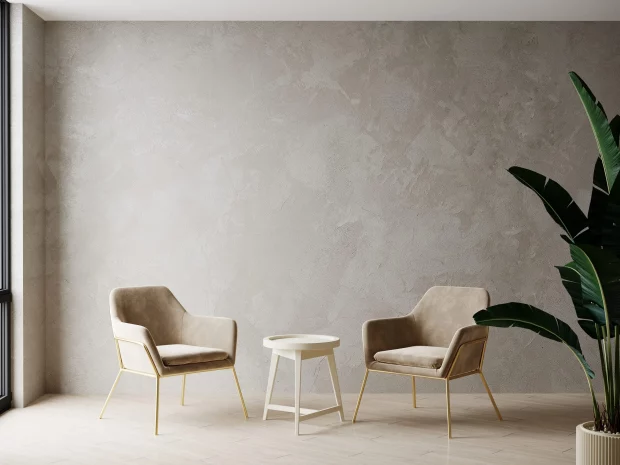Microcement Art: Customizing Surfaces with Intricate Designs and Colorful Finishes
Microcement art is a relatively new trend in the world of interior design and decorative finishes. It involves the application of a thin layer of microcement, a type of highly versatile and durable cement-based material, to surfaces to create a smooth, seamless finish. Microcement can be applied to a variety of surfaces, including walls, floors, and countertops, and can be finished in a range of colors and styles to suit a wide range of design preferences.
One of the key features of microcement art is its ability to be customized and molded into unique shapes and patterns. Many artists and designers are using microcement to create intricate and detailed designs, such as imprinting patterns or images into the coating. This allows for a level of creativity and individuality that is not possible with more traditional decorative finishes.
In recent years, microcement art has gained a lot of attention due to its versatility and durability, making it a popular choice for both residential and commercial spaces. Whether you are looking to add a modern touch to your home or create a statement piece in your business, microcement art offers endless possibilities for creating a one-of-a-kind look.


Creation of Microcement Art
Microcement art can be created through a variety of techniques, depending on the desired look and finish. Some common methods include:
-
Imprinting: This involves creating a pattern or image by pressing a textured surface into the wet microcement before it dries. This can be achieved using tools such as stamps, rollers, or even hand-carved blocks.
-
Staining: Microcement can be stained with pigments or dyes to create a range of colors and shades. This can be done either before or after the microcement has been applied to the surface.
-
Layering: Multiple layers of microcement can be applied to create a sense of depth and dimension. Different colors or finishes can be used in each layer to create intricate patterns and designs.
-
Polishing: After the microcement has dried, it can be polished to a smooth finish using a variety of techniques, such as hand-polishing or machine-polishing.
Applications of Microcement Art
Microcement art can be used to enhance a wide range of surfaces, including:
-
Glass: Microcement can be applied to glass surfaces to create a smooth, seamless finish. This can be especially effective for creating a modern look in kitchen and bathroom spaces.
-
Ceramics: Microcement can be used to repair and refinish ceramic tiles, giving them a new lease on life. It can also be used to create decorative accents on ceramic surfaces such as sinks and countertops.
-
Natural stone: Microcement can be used to restore and protect natural stone surfaces, such as marble and granite. It can also be used to create decorative accents and patterns on these surfaces.
Design Options for Microcement Art
There are endless design possibilities when it comes to microcement art. Some popular options include:
-
Geometric patterns: Microcement can be molded into a variety of geometric shapes and patterns, such as squares, circles, triangles, and diamonds.
-
Natural textures: Imprinting techniques can be used to create a range of natural textures, such as wood grain, stone, or brick.
-
Custom designs: Microcement can be used to create unique pieces of design like furniture, such as a concrete tables or a microcement countertop for a kitchen island. Its versatility and durability make it a practical choice for functional pieces that will see a lot of use.
-
Metallic finishes: Microcement can be finished with a metallic finish to create a modern, glam look.
Conclusion
Microcement art offers a wide range of possibilities for creating unique and individualized decorative finishes. Its versatility and durability make it a popular choice for both residential and commercial spaces. Whether you are looking to add a touch of sophistication to your home or make a statement in your business, microcement art offers endless design options to suit any style preference.